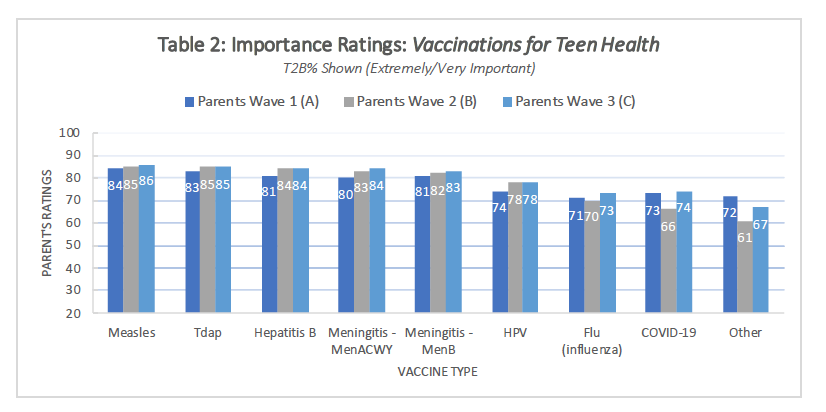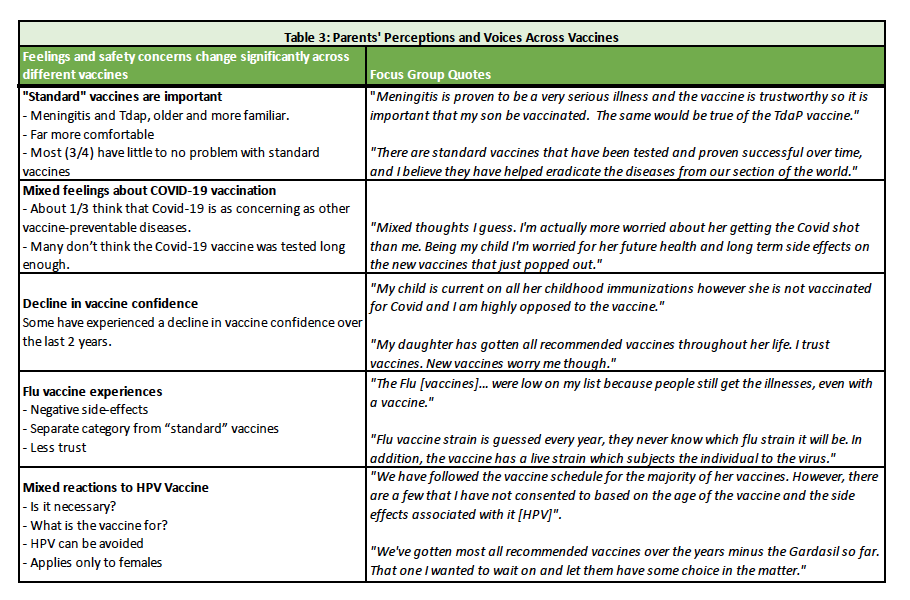Adolescent Medicine: General
Adolescent Medicine 2
3 - All Vaccines for Adolescents are not Equal in the Minds of Parents: Highlights of Research with Parents and Adolescents on Vaccine Confidence and Importance
Publication Number: 3.2
- JK
Judy Klein, BS, BA (she/her/hers)
President
Unity Consortium
Newton, Pennsylvania, United States
Presenting Author(s)
Background: Adolescent and young adult (AYA) vaccinations plummeted during the Pandemic and are the slowest across age-groups to return to pre-pandemic levels. Data for provider vaccine orders indicate that HPV vaccines have not recovered to pre-pandemic levels, while MenACWY and Tdap have recovered significantly.
Objective: Unity conducted two multiphase market research studies with adolescents and parents of adolescents to understand the factors impacting lagging vaccination rates, including a focus on vaccine confidence in communities disproportionately impacted by the Pandemic.
Design/Methods:
Unity conducted multiwave, online survey research on preventive health and immunizations with U.S. representative groups, adolescents aged 13-18 (n=300/wave) and parents of adolescents (n=500/wave), oversampling disproportionately impacted groups, and considering income, household location and race/ethnicity. Surveys were fielded in August 2020, February and June 2021. The survey instrument was repeated across waves and updated in waves 2 and 3 with COVID-19 vaccine availability.
In November/December 2021, Unity delved deeper into the relationship between vaccine confidence, and parents social media use with multiphase, mixed methods research. Starting with social media vaccine influencer interviews (n=5), then asynchronous online board group discussions with parents (n=60) of AYAs and finishing with in-depth parent triad (n=18) discussions stratified by vaccine beliefs.
Results:
Adolescents and parents reported statistically significant increases in vaccine safety concerns from the pre-pandemic baseline through 2021, according to Unity’s multiwave surveys. Parents reported concerns about vaccine safety in general (Table 1) and specifically, influenza, COVID-19, and HPV vaccines rated lower in importance across all waves than other routine immunizations (Table 2). Focus groups highlighted vaccine safety concerns that differed significantly by vaccine type (Table 3).
Conclusion(s):
Unity’s research initiatives have uniquely assessed the shift in parental and AYA beliefs about vaccine importance and hesitancy throughout the Pandemic. Research shows that parental vaccine confidence is spread unevenly amongst AYA recommended vaccines. Flu shots are viewed as less important than routine vaccines. Mis/disinformation on social media about vaccines, including COVID-19 and HPV, have led to parental confusion and concern. Parents have more confidence in "standard" vaccines such as Tdap and MenACWY. These vaccine specific beliefs can lead to gaps in routine AYA immunization coverage..png)


